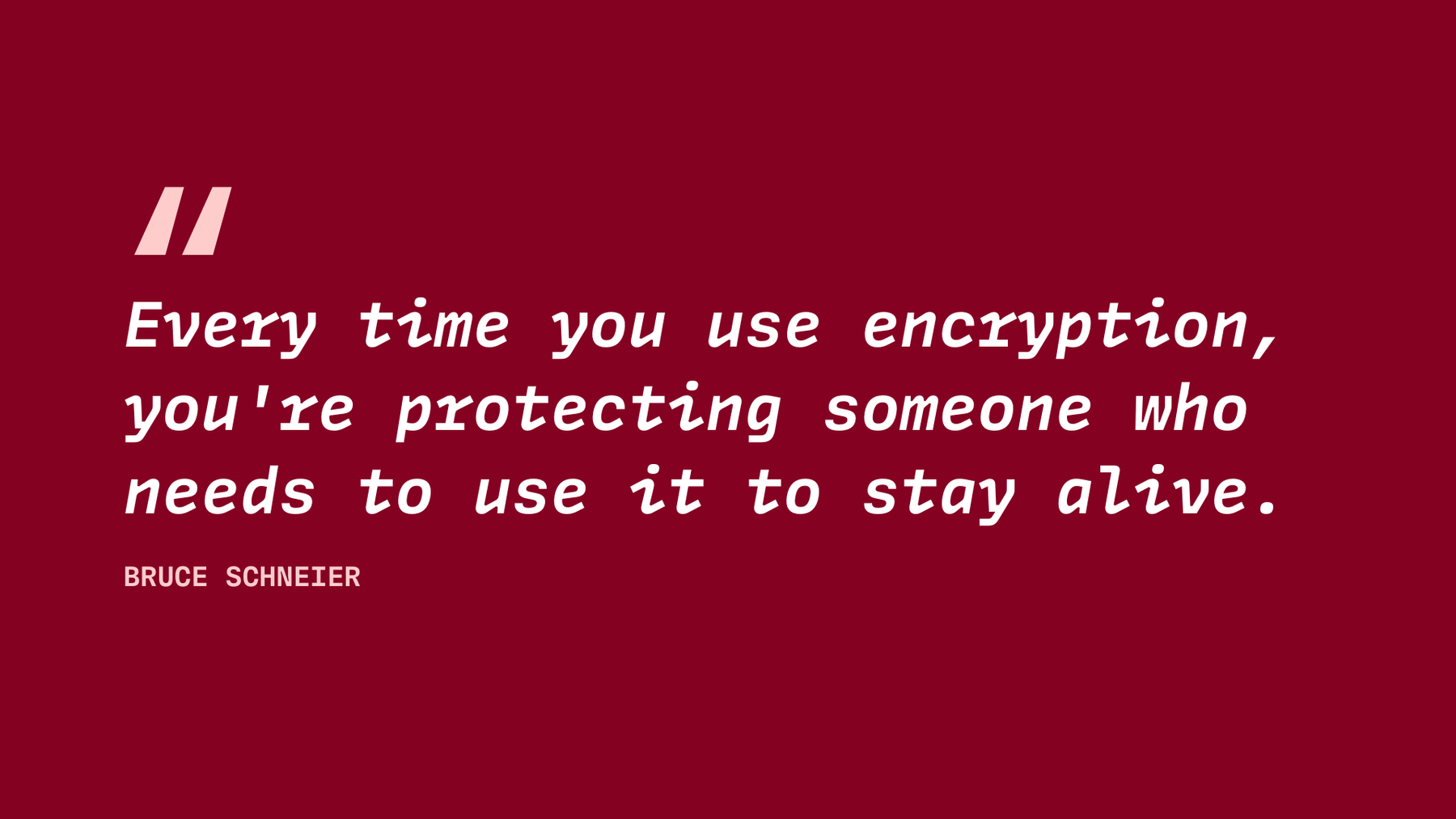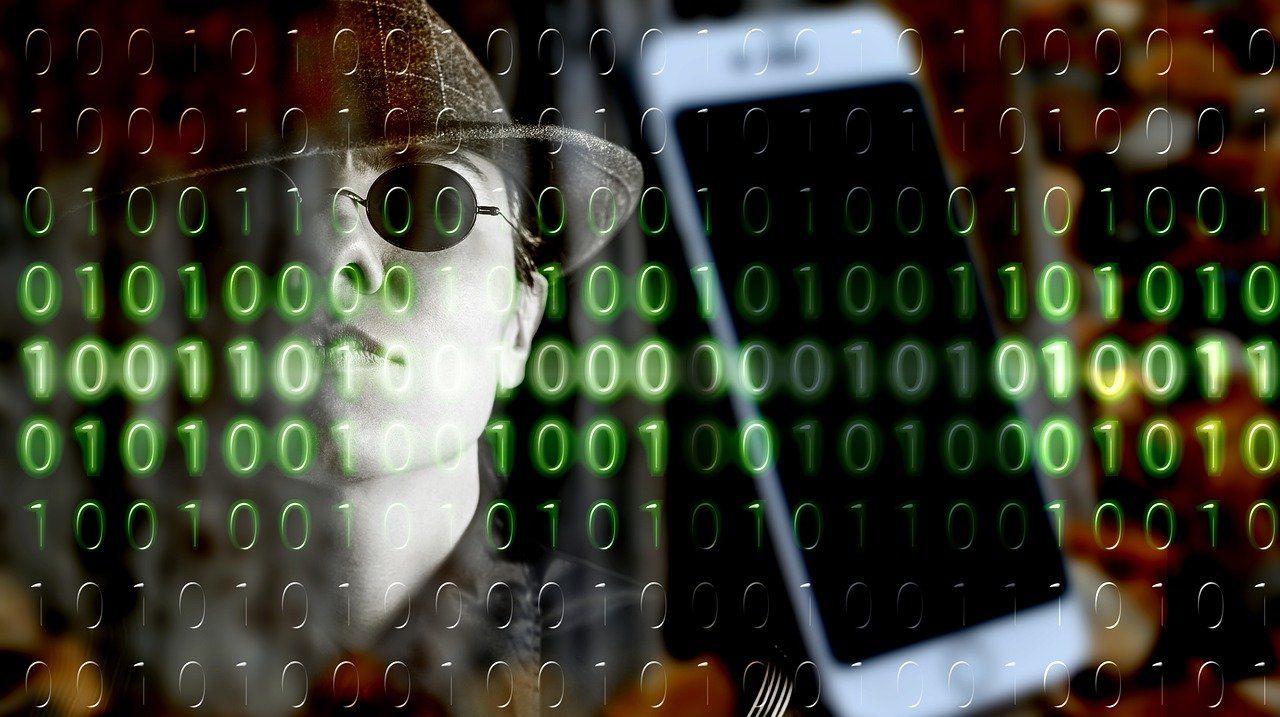Going dark: The EU Council wants to take away encryption from all citizens.
Politicians often warn that criminals are 'going dark'. This warning is used like the argument to 'protect the children': to undermine encryption.
Going dark explained
Going dark means that a communication has moved from a public communication channel - where it could be monitored - to a private communication channel - where monitoring is impossible. Encryption, for instance, allows people to protect their communication from eavesdropping.
Sweden warns of criminals ‘going dark‘
“Digital services are increasingly abused by criminals to commit crimes such as child sexual abuse, online rape, fraud, ransomware attacks or attacks on critical infrastructure. Moreover, digital services are also an important tool with which criminals can instigate, plan, and commit crimes, and also advertise and offer criminal services and host illegal marketplaces. It is easy for criminals to ‘go dark’ under these circumstances. Criminals can commit crimes in ways that law enforcement cannot detect and intercept, and this is vastly facilitated by encryption-protected communications”, the Council’s leaders wrote in a communication preparing for an informal meeting of member states’ interior and justice ministers in Stockholm this Thursday.
While the Swedish EU presidency does not blatantly mention to break end-to-end encryption, the paper does say that there is “the need for effective approaches to encrypted communication”. Sweden also wants to undermine encryption. On the other hand, the Swedish Armed Forces endorse the use of end-to-end encryption for obvious securtiy reasons.
Going dark: Is this a dilemma between secure, private communications and the security interests of states?
Politicians tend to present secure and private communication as dangerous to state security. This is a typical method used in the crypto wars. The argument being: to protect against threats like terrorism, child sexual abuse, and more, law enforcement must have access to digital communication.
The argumentation in the Swedish paper is the same:
“The abovementioned concerns highlight the need to discuss access to communications data as a necessary and proportionate measure in a democratic society to safeguard the prevention, investigation, detection or prosecution of criminal offences, as well as the protection of victims of crime and threats to public security.”
While the politicians say that access to digital communication would be a necessary and proportionate measure, privacy activists and security experts disagree harshly.
Member of the European Parliament Patrick Breyer (Pirate Party) comments:
“**The fairy tale of ‘going dark’ demonstrates that surveillance ideologues will not rest before they have destroyed all privacy and intimacy and invaded all safe spaces. ** The truth is that governments have never had as far-reaching and comprehensive an access to our private lives as they do today in the digital era. We have never lived as safely or as long as we do today."
"With their plans to break secure encryption, EU governments are willing to sacrifice the overall security of our private communications, public networks, business secrets and even state secrets for short-term surveillance desires. Opening the door to foreign intelligence services and hackers is completely irresponsible and puts whistleblowers and people who rely on secure communication channels at risk. There is no such thing as a secure back door!"
"Looking at the investigations of recent terrorist incidents in Europe, it becomes clear that traditional instruments of law enforcement such as house searches or observations are often more effective in tracking down perpetrators and collecting information. However, these methods are time-consuming and more cost-intensive than seemingly simple technical solutionism. In many cases, perpetrators acted without relying on encryption and had long been known to authorities. Weakening encryption and thus putting us all under general suspicion threatens to destroy both security and privacy!”
Do we need to ban encryption?
Security experts have explained again and again that banning encryption is impossible: It is impossible to enforce a human law aiming at banning the laws of mathematics. Because mathematics says that you can have good encryption, it can simply be programmed with code that fits on one sheet of paper.
Despite the arguments from privacy activists and security experts politicians continue to fuel the myth that we need to ban encryption to prevent criminals from ‘going dark’.
At the same time, the ‘going dark’ mantra does not become more valid through constant repetition.
Only outlaws would have encryption
As a result, only people who are ready to break the law will have encryption. The general public will not.
Or as Phil Zimmermann put it: “If privacy is outlawed, only outlaws will have privacy.”
What the politicians are asking for, is, consequently, wishful thinking. The Register has made a pointy prayer about this that all politicians asking for a ban on encryption should learn by heart:
“Oh Lord, grant us this day all the data, but keep it from the sight of the evil-doers. And if that’s not possible, because it isn’t, even for thou, oh Lord, force industry to give it to us by framing them as complicit in child sex abuse. Amen.”
The truth is: If an encrypted service contains a backdoor “for the good guys only”, it contains a backdoor.
It’s impossible to make an encrypted system insecure without making it insecure. By breaking encryption, politicians would destroy everybody’s security, which is clearly illustrated by this collection of backdoor fails.
Lives depend on encryption
Politicians will continue to call for a ban on encryption to fight terrorism and to “protect the children”. But make no mistake here: Free and democratic societies depend on encryption as much as they depend on free speech and the right to privacy.


Going dark is a negative framing of something very positive: confidential communication.
Encryption is essential to protect activists, lawyers, human rights defenders, journalists, and many more.
That’s why demanding a ban on encryption must stop.

